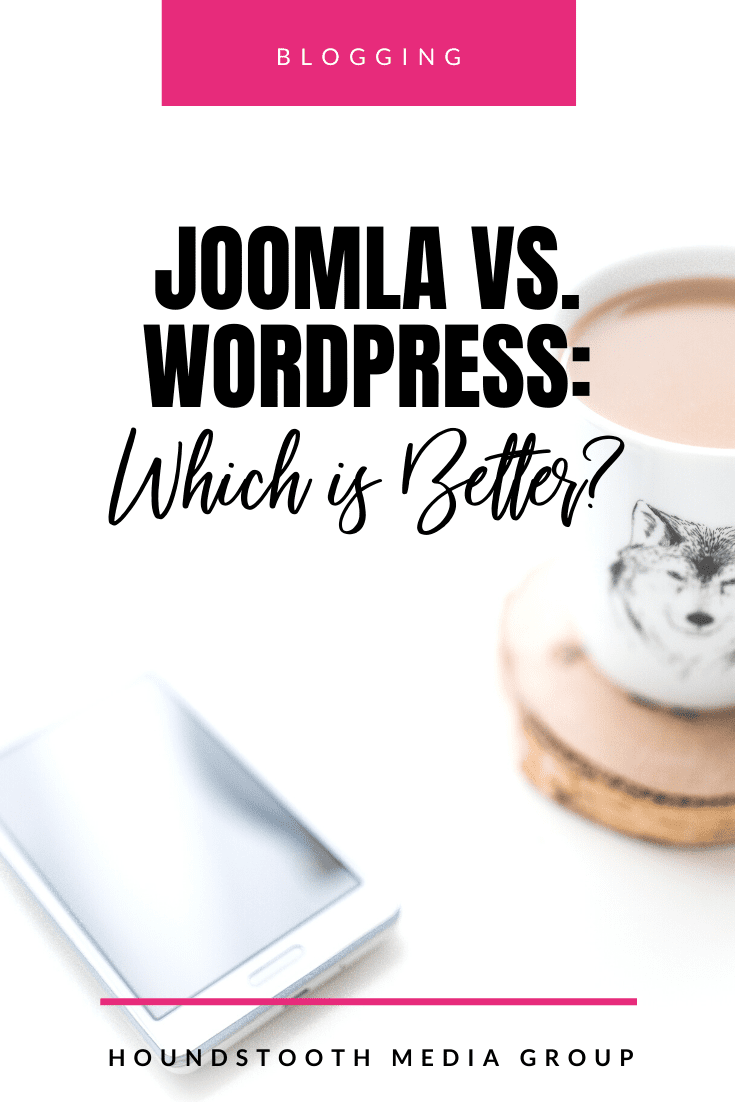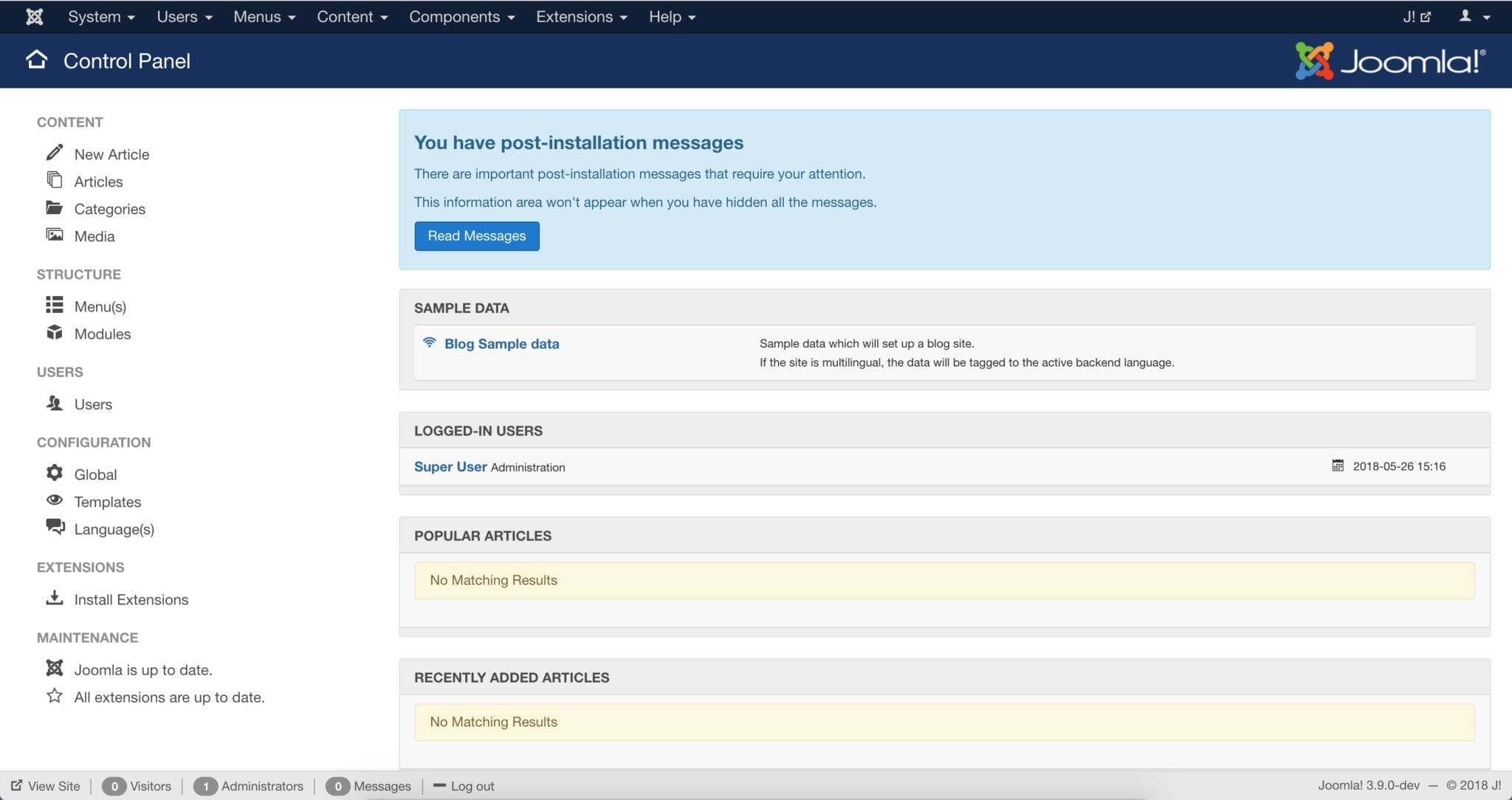One of the first decisions you have to make when building a website is which Content Management System (CMS) to use. We’ve explored some of the other options, such as Wix, in past posts. Now let’s take a look at another CMS, Joomla, to see how it compares to the industry leader, WordPress. Which is better in the contest of Joomla vs WordPress? The answer will help you make the best choice for your new website.

Ease of Use
WordPress is generally regarded as being the easiest CMS system for non-developers to use. Most hosts have pre-installed WordPress so users can start creating their site immediately. The WordPress interface is simple enough that most users can start creating content immediately. Web creators do not need to know how to use code when creating a website from scratch on WordPress.
Joomla has an auto-installer that will help users start creating fairly quickly. The Joomla interface, however, has a bit of a learning curve. The CMS uses a combination of articles and categories, so you will need to create categories before you can start creating content. The interface is not as clear as WordPress, though it is manageable.
For ease of use, WordPress takes the lead over Joomla.
Customization

Your website may be the first introduction consumers have to your brand or business. This is where the customization of your site is critical. The first thing to consider is the appearance of your site. Both Joomla and WordPress have add-ons that users can utilize to customize the appearance of their site. WordPress calls them themes while Joomla calls them templates.
- WordPress has over 5,000 free themes plus thousands of premium themes.
- Joomla has no official template library, so the number is unknown. There are also many premium templates for purchase.
Both CMS platforms also have add-ons to improve the functionality of your site. WordPress calls these plugins, and Joomla calls them extensions.
- There are over 50,000 free plugins available to download at the official WordPress.org plugin directory, in addition to thousands of premium plugins.
- Over 8,000 extensions can be downloaded at the official Joomla extension library.
When it comes to customization of your site, WordPress gives users more options for adjusting both the appearance and functionality of their site.
Security
The cores of both Joomla and WordPress are secure. Both platforms allow users to install third-party plugins or extensions to enhance their site’s security. Joomla and WordPress also both have update systems on their dashboards to help users keep their plug-ins and extensions up to date.
They are both equally safe when it comes to protecting your site from hackers.
Search Engine Optimization (SEO)
When it comes to getting your website’s content in front of people’s eyes, you have to master SEO. You need your site content to rank high in search engine results. Both Joomla and WordPress offer added features that will help you address SEO.
WordPress has many SEO plugins that can be downloaded. The most popular and well known is Yoast SEO plugin. This powerful plugin is free and utilizes a red light, yellow light, green light system to categorize your SEO scores and readability. Helpfully, the plugin gives you specific steps that you can take to improve your score.
Joomla has extensions that users can add to their site to improve their site’s SEO. Easy Frontend SEO offers several of the same options as Yoast. The extension will allow you to easily update the metadata on any page. It is not as robust as Yoast, however, and does not give users the specific areas to adjust to improve their SEO score.
For this reason, WordPress edges out Joomla when it comes to SEO.
Conclusion
Based on our comparison of Joomla vs WordPress, it is clear to see which one is the frontrunner. While both CMS platforms are secure and user-friendly, WordPress is ahead of Joomla in key areas such as site customization and search engine optimization. Overwhelmed by the options? Let the team at Houndstooth Media Group guide you.